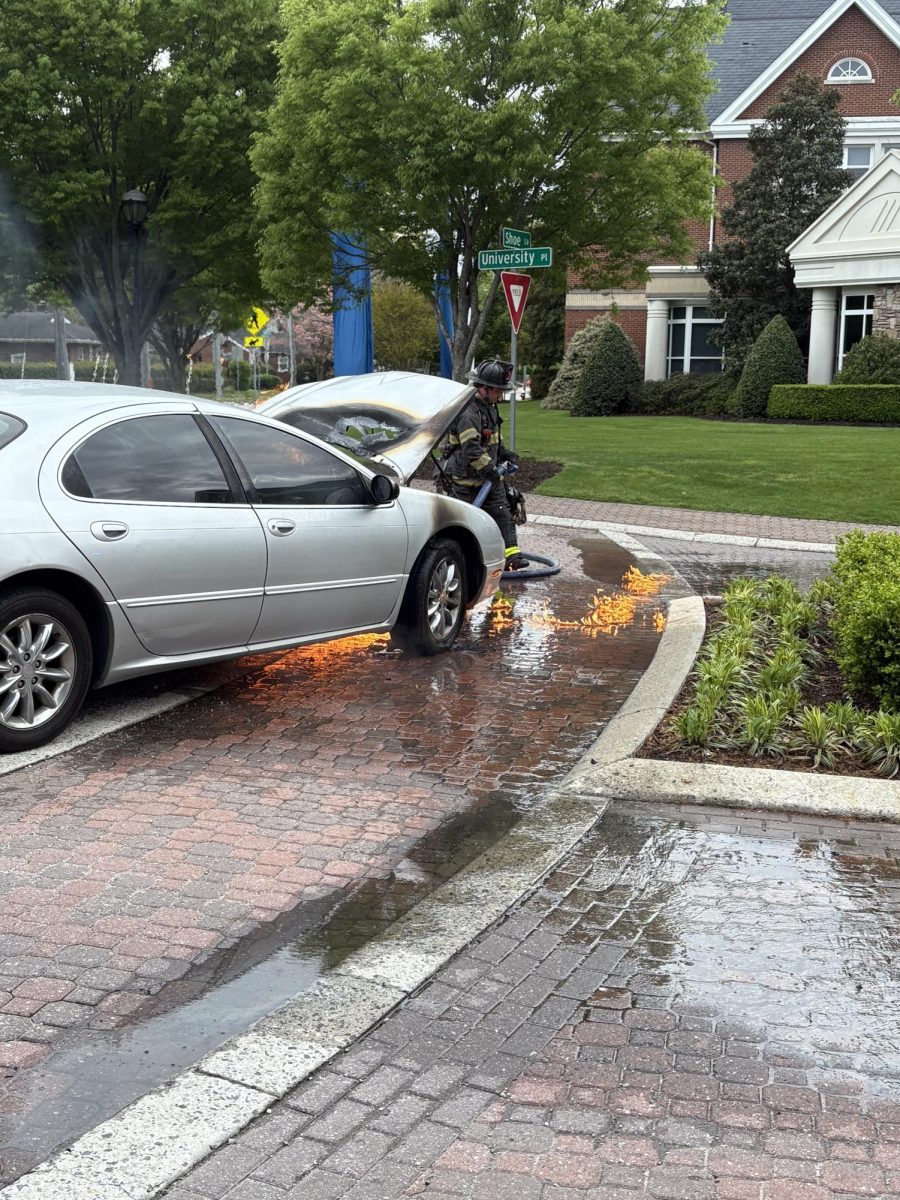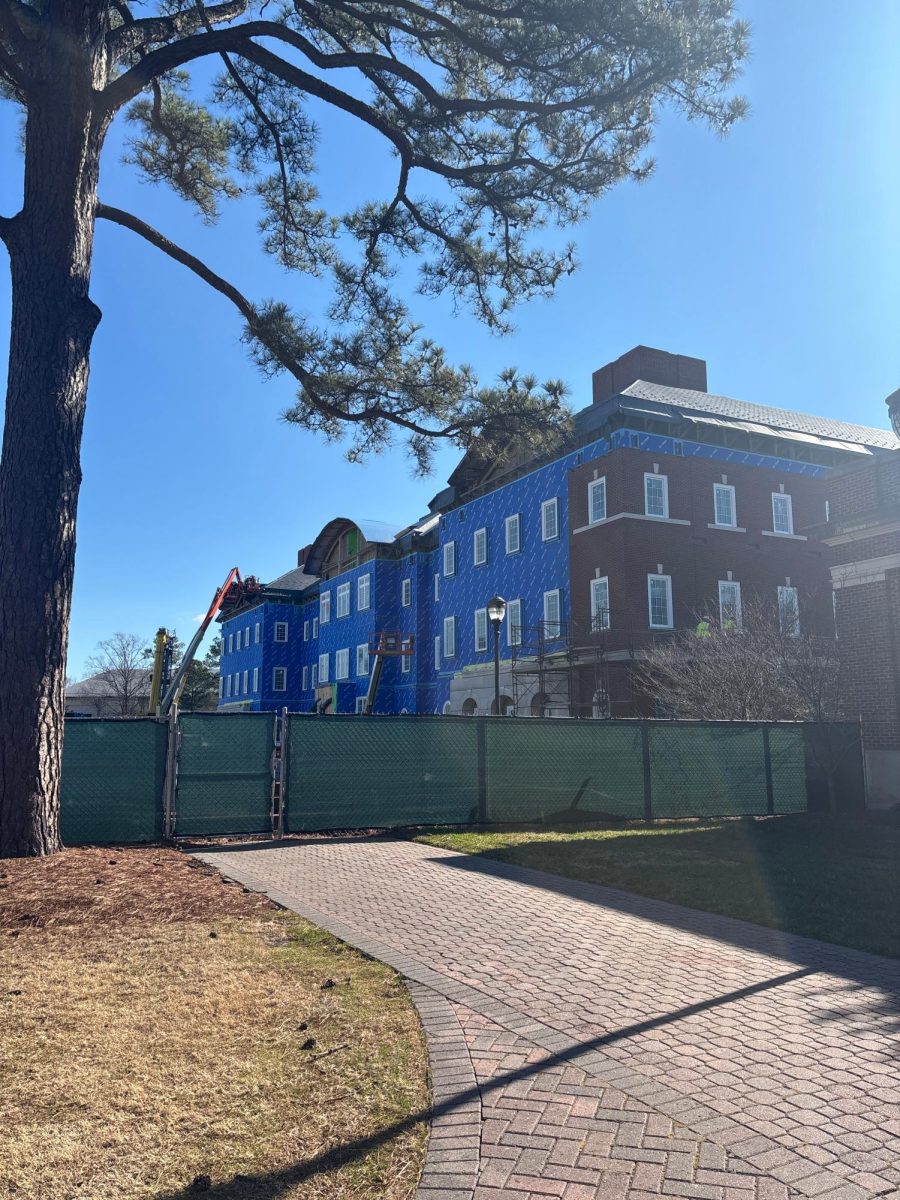Over the course of the past year, Christopher Newport University has implemented various changes to campus parking including adjustments to East Campus expansion, faculty and staff parking and the addition of day student/commuter parking. The changes went into place on August 1 with full enforcement on September 3.
Christopher Newport University Director of Parking Services Shawn Holmes stated that Parking Services conducted a “comprehensive study of the campus parking situation, informed by feedback from focus groups held in 2023.” The conducted sessions provided an opportunity for the concerns from faculty, staff and students. The department came to the conclusion that necessary changes would “improve the parking experience for the entire campus community.”
The east campus parking expansion includes the conversion of Lot O to be a designated parking area. “This new East Campus lot will help reduce congestion in the Main Campus lots, particularly E1 through E4, by providing space for approximately 60 cars that were previously parked there,” Holmes said.
Faculty and staff parking adjustments were also made to assist with staff previously parking in the Luter parking lot, Lot D. A portion of Lot E1 has been converted into a Faculty and Staff specific lot, Lot D2. “This change will help ensure dedicated spaces for displaced Faculty and Staff who had shifted to using the E1 through E4 lots,” he said.
There have also been additions for new day student and commuter parking. After hearing the concerns of commuter students, Parking Services implemented day student parking decals, costing a total of $275. This price applies for all student decals to allow them to park in designated locations without receiving a citation. The new day student parking decal allows students to utilize a converted section of Lot I, now known as Lot I2, to be available specifically for commuters Monday through Friday from 7:30 AM to 5:30 PM. Afterwards, the space is available as open parking for all campus community members. “We believe these changes are a step forward in addressing the concerns raised by the campus community and improving the overall parking experience,” Holmes said.
Although there has not been an increase in the number of physical spaces, commuter students are still intended to reap the benefits from having designated reserved parking spaces for them during peak hours.
Although the changes have been created with the intentions of improving the parking experience for all students and faculty, some commuter students continue to experience difficulty finding parking.
One commuter, a junior transfer student, said that unless she arrives to campus early in the morning to secure parking behind McMurran Hall and the Potomac River Residence halls in student Lot I, then she experiences 10 – 15 minute delays having to park on the opposite side of campus, which is up to triple the time it takes her to commute to campus.
The student also stated that the price she paid for the decal did not accurately reflect the amount of times she parked on campus or the durations of time she was there for.
“It is outrageous,” she said, “most commuter students are living at home to save costs on housing.” She added, “It costs more than my required course materials.”
The student pointed out that she doesn’t park overnight and only commutes to campus one to two times a day. Being a first generation student, she stated she couldn’t afford to receive a parking ticket despite the limited space.
She also stated that tuition funds should be allocated to parking on campus due to the overall cost of tuition.
The new changes are also intended to provide significant improvement for non-commuter students as well. In the past, a significant portion of East Campus students experienced trouble finding amicable parking and had to park across Warwick Boulevard. The new East Campus lot is intended to provide students with closer parking to their own residence halls.
“The primary goal of these parking changes was to improve the parking experience for commuters, East Campus residents, and faculty and staff,” Holmes said. “By making these adjustments we hoped to better meet the needs of various groups within the campus community and enhance practicality while addressing the specific needs of different campus populations.”
The university is continuing their developments in parking across the entire campus to make it more “user-friendly.” While the changes moving forward continue to be developed, Parking Services intends to inform the community as they progress.




